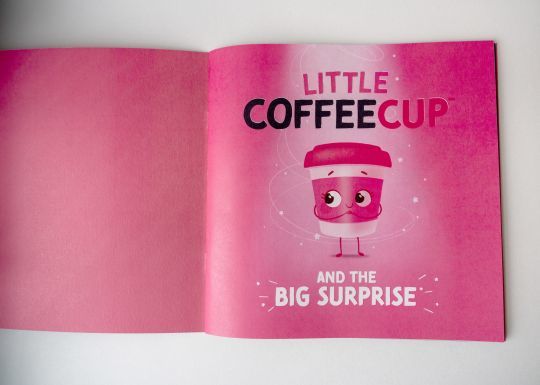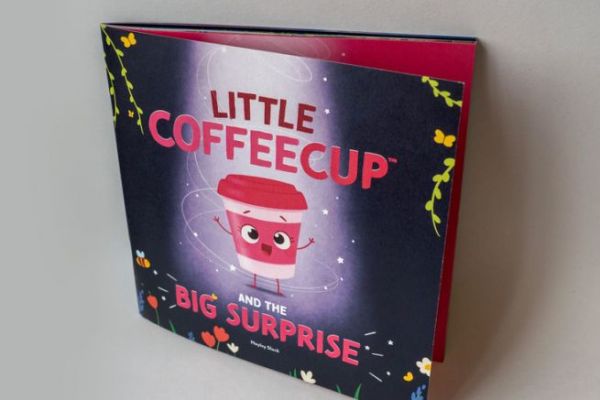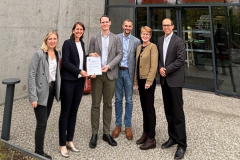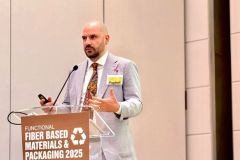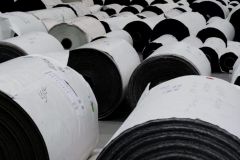With Little Coffee Cup and the Big Surprise british author Hayley Slack has created an atypical book: the very first children's book printed on paper made from recycled coffee cups. The book, aimed at children aged 3 to 7, was produced using the CupCycling process developed by English paper manufacturer James Cropper, which specializes in technical and creative papers and has been in operation since 2017.
58 million cups recycled by James Cropper in 2024
Each printed copy of the book contains the fiber from 13 cups collected in the UK. This paper, manufactured and processed locally in Burneside in the north-west of England, recovers a waste stream that is often poorly collected: according to figures provided by the NGO Wrap, nearly 3.2 billion single-use cups are thrown away every year in the UK. The organization also points out that industrial recycling capacities already exist, but that the main obstacles remain collection and participation.
James Cropper claims to have diverted 58 million cups from landfill last year, reinjecting these fibers into the manufacture of high-end papers.
The story of a coffee mug on an adventure
Printed in England, the book, which will be available soon, symbolically ends on a double-page spread evoking the very site where the paper was produced. The story by Hayley Slack, also an employee of Biffa, a company specializing in waste management, features a cup of coffee leaving its café to discover the world of reuse. This content is designed to address the notions of recycling, material life cycles and waste reduction in an accessible form.
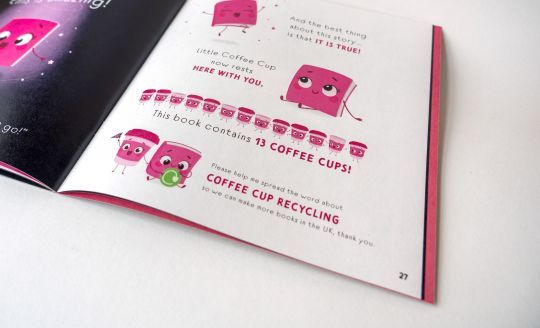
And in the meantime, recycling cups in the ground
The book's release comes at just the right time. It comes at a time when the British government has recently given up on imposing a mandatory take-back system for single-use cups, believing that implementation would be too costly and not very effective...
"Books have the power to influence children's view of the world, so why not use them to show how the world could be too?" asks Hayley Slack.
